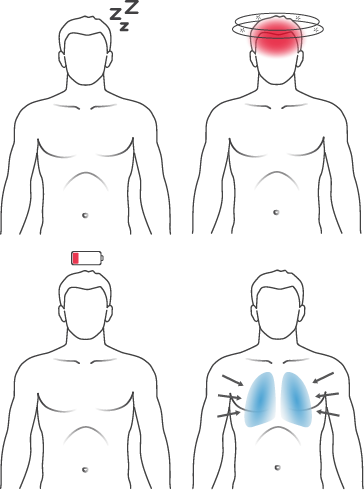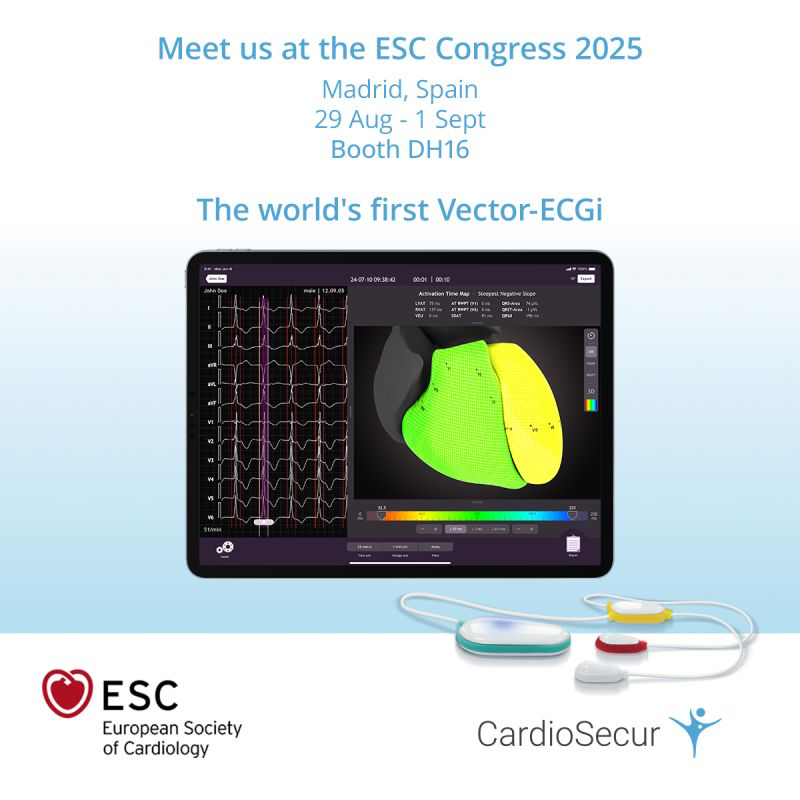Silent Heart Attack
A silent heart attack is a heart attack that occurs without clear symptoms, or sometimes without any symptoms at all. This causes the heart attack to go unnoticed, often being recognized only days, months or even years following its presentation. As circulation is affected, part of the heart muscle dies. Silent heart attacks occur more commonly in men than in women; however, silent heart attacks are more often fatal for women. In addition, following a silent heart attack, the risk of dying due to heart disease is three times higher than for someone with a normal ECG, and the overall risk of death rises to 34 percent.
What are the symptoms of a silent heart attack?
What are some symptoms of a silent heart attack?
With a silent infarct, the classic symptoms of a heart attack such as chest pain, difficulty breathing and perspiration and are not present. Possible symptoms may include: fatigue, uneasiness, sluggishness or difficulty breathing. The feeling of faintness, dizziness or weakness, that either resolves on its own or increases in intensity to the point of collapse, can also be a potential indicator of a silent heart attack. In many cases the symptoms are either never felt or disappear over time, causing patients to not seek medical attention. For this reason silent infarcts are particularly dangerous and can cause long-term side effects for the heart.

Fatigue, uneasiness, sluggishness or difficulty breathing can be the symptoms of a silent heart attack.
What causes a silent heart attack?
The causes of a silent heart attack are the same as those of a typical heart attack. Diabetics, in particular, are frequently affected by silent heart attacks due to the presence of neuropathy. When the blood sugar level is uncontrolled over time, the blood vessels and nerves are damaged, causing many diabetics to have a decreased or absent perception of symptoms (such as pain); this is known as diabetic neuropathy. To learn more about diabetes and its various side effects, read our specialty article entitled Diabetes Mellitus.
A main cause is calcification of the arteries (arteriosclerosis). When arteriosclerosis is present, less blood can flow throughout the body via the blood vessels. Under strong physical or emotional stress, not enough oxygen and nutrients reach the organs, including the heart. This can lead to a heart attack (silent or with symptoms), in which the heart muscle dies.
To learn about how arteriosclerosis develops and its risk factors, read our article entitled High Blood Pressure.
Physical and emotional stress can be triggered by personal, professional and family activities, as well as by smoking, physical inactivity or obesity. A silent heart attack often results in a decline of the hearts pumping function. This triggers an elevated heart rate and heart rhythm disturbances, and can restrict the everyday activities of the person affected. Scarring of the heart muscle from an infarct is associated with a decreased life expectancy and permanent heart damage; the risk of experiencing another heart attack is also higher. However, the reason for which every second heart attack is silent in nature remains unexplained.
How can a silent heart attack be prevented?
According to a study published in May 2016, nearly every second heart attack is silent in nature and can only be detected by an electrocardiogram (ECG). Routine ECG readings can help increase the probability of recognizing a silent heart attack. Long-term ECG systems with only a one-to-three-lead system are not helpful, as they cannot detect a heart attack; on the contrary, a 12-lead ECG can. With CardioSecur Active, such an ECG can be recorded at the moment symptoms occur, or on a routine basis for monitoring purposes. This makes a precise diagnosis and effective treatment possible. In order to prevent a future heart attack, it is imperative to relax, which both the mind and heart need. It is important to live as healthy of a life as possible, to eat nutritious food, drink alcohol only in moderation, to exercise often and to avoid tobacco products. When symptoms such as chest pain, dizziness, difficulty breathing and/or easy fatigue are present, it is generally recommended to have a heart check-up performed. If symptoms such as chest pain (angina pectoris) persist, one should seek medical attention immediately, in order to prevent the death of additional heart muscle and its associated side effects.




